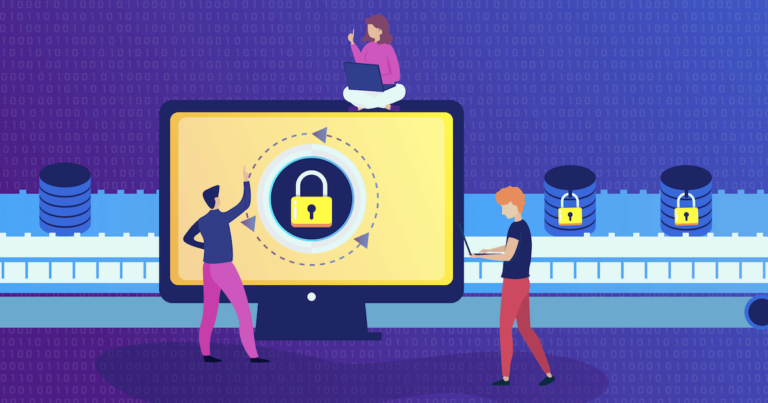Cloud computing has become a must for companies seeking to accelerate innovation and collaboration. Not only enterprises but SMEs have also expanded the adoption of cloud services, especially being hit from Covid-19. Although the pandemic situation fosters digital transformation more with cloud services. It invites increased complexity in cloud computing and has opened up more security gaps. However, even with all cloud benefits, the rapid and unplanned cloud adoption requires extra measures for cloud security.
In turn, this change has meant that organizations should take responsibility for implementing the proper cybersecurity practices in the cloud and secure their data available on the cloud. But it isn’t as simple as it sounds. Many researches provide insights that users face psychological barriers for protecting critical business data against extrinsic vulnerabilities, primarily when data is hosted in a public cloud arrangement.
However, this is not the end of the discussion. There are ways to ensure cybersecurity in the cloud and run operations in secure and robust cloud environments. But before knowing the best practices for ensuring cybersecurity in the cloud, let’s first understand consumer’s apprehensions for cloud security.
Factors Influencing Cyber Attacks In Cloud And Security Needs For Them
Accelerating need for adaptive security has opened the door to opportunistic threats which could come and impact in any form. Here we have listed below some factors invites cyber attacks intentionally and unintentionally and having an added security for it is crucial for companies to maintain round the clock.
1. Protecting Intellectual Property
Intellectual property is one of the most critical business assets. The year 2018 has a record of filing 3.3 million patent applications. The data proves the significance of the IP of a company. Intellectual property provides a competitive advantage to the holding company. Loss of IP could cause significant damage to patent companies like snatch all chances of innovation as well as loss of product market share due to availability of duplicate products or processes at much lower prices
2. Need To Adopt With Changing Regulatory Compliance Guidelines
In today’s time, businesses are required to follow industry-specific compliance guidelines. It is crucial to practice regulatory compliance since data protection is essential to gain user trust and operate business functions efficiently in a particular geographical area. HIPAA is one of the best examples of it that bound every medical service provider to comply. Violations to regulatory compliance result in legal issues, and not adhering to compliance-related guidelines could put your business vulnerable to security breaches or cloud computing security.
3. Lateral Spreading Of Attacks
Cybersecurity in the cloud is a must-have to secure business assets and sensitive information from lateral attacks. Lateral movement is much harder to spot than traditional cyber attacks. Therefore, businesses are required to have robust defense controls to prevent cyber-attacks from spreading from one resource to another host on a cloud. When a company fails to have an infrastructure of security needed, it quickly compromises with several databases and apps hosted in the cloud. Using secure cloud-based storage for all your IP information may actually enhance its protection.
4. Less Control Over Cloud Environment
Applications deployed on the cloud live in a different environment than on-premise servers. Therefore it is reasonable to expect that cloud security will be different than on-premise. It is important here that organizations use a range of cloud security tools and services that help secure networks and applications and support cloud-based user access controls. However, just like reduced visibility, organizations often do not get control over their cloud computing environment.
5. Minimal Visibility Of The Cloud Ecosystem
You cannot secure what you can’t see, and this also applies to cloud solutions. Your cloud solution is an ecosystem that spans multiple vendors, systems, and applications. To ensure every factor of the ecosystem and the ecosystem itself is secure, you must have visibility over it all. Cloud solutions such as IaaS and PaaS allow users to configure and manage the cloud environment and mitigate the problem of not having exposure to the cloud ecosystem.
List Of Top 5 Cybersecurity Best Practices In Cloud
Managing security requires continuous efforts because risk factors change over time; therefore, businesses need to adjust their policies continuously. Here are the top five best practices that companies can leverage as a proactive approach to prevent cyber-attack on their business’s cloud repository.
1. Least Privilege
Today’s highly connected world requires a widely robust security system that least privilege provides. Least privilege is a concept and a practice of restricting access rights for users, accounts, and computing processes. Under the least privilege policy, only those who are given required access to those who absolutely require to perform routine, legitimate activities. Today’s fast-emerging businesses and processes that run from the cloud require the least privilege as it also applies to processes, systems, applications, and devices like IoT, RPA, and others and restricts permission needed to perform an authorized activity.
2. Adapting SSH Keys
Secure Shell or SSH is a special network protocol that provides strong, encrypted verification and communication between the user and a remote computer. Secure shell uses public-key cryptography and allows only authorized users to remotely access a server or computers/devices via access credentials called SSH keys.
SSH is ideal to use to access remote devices over unsecured networks, such as the internet. As cloud computing is a service provided over the internet, administrators of businesses are widely using SSH to perform several jobs like logging into remote servers for support and maintenance, providing updates, transferring files from one computer to another, and others.
3. Using Multi-Factor Authentication
According to the 2021 data breach investigation report, 85% of breaches involved the human element. For cloud data and cloud applications, multi-factor authentication allows businesses to secure them in two key ways: MFA adds another layer of authentication using methods such as security questions, biometrics, OTP, and others. MFA in a cloud setup challenges users to prove their identity and provides IT professionals with visibility into multiple applications. The admin leverages the advantage and restricts access to apps or data in the cloud only to restricted people who need to complete due tasks. It adverts the risk of losing, stolen, or even compromised login credentials.
4. Cloud Encryption
Cloud encryption is a process of using mathematical algorithms to transform data before it’s transferred to cloud storage. Whether the data is text, file, code, or image, encryption makes the data unreadable. Unauthorized and malicious users can’t breach, steal or read this data without encryption keys. However, businesses are required to first identify their security needs and then deploy encryption in the cloud. Encryption services are provided to businesses based on their requirements and industry standards.
5. Performing Routine Penetration Tests
Cloud computing is the shared responsibility of businesses and cloud service providers. Hence it is technically the responsibility of both to check for vulnerabilities in the cloud. Cloud computing penetration testing allows us to review and examine cloud systems actively. Routine penetration testing is performed by simulating attacks from the malicious code. This way, businesses can monitor the presence of threats, risks, and vulnerabilities themselves and improve the system.
Final Thoughts
Cloud computing has several benefits along with challenges for its end-users. In-efficiency about the cloud environment can have pretty severe implications. Therefore, every company should make sure that strong cloud computing security policies are enforced to ensure that data stored in the cloud remains secure at all times.




